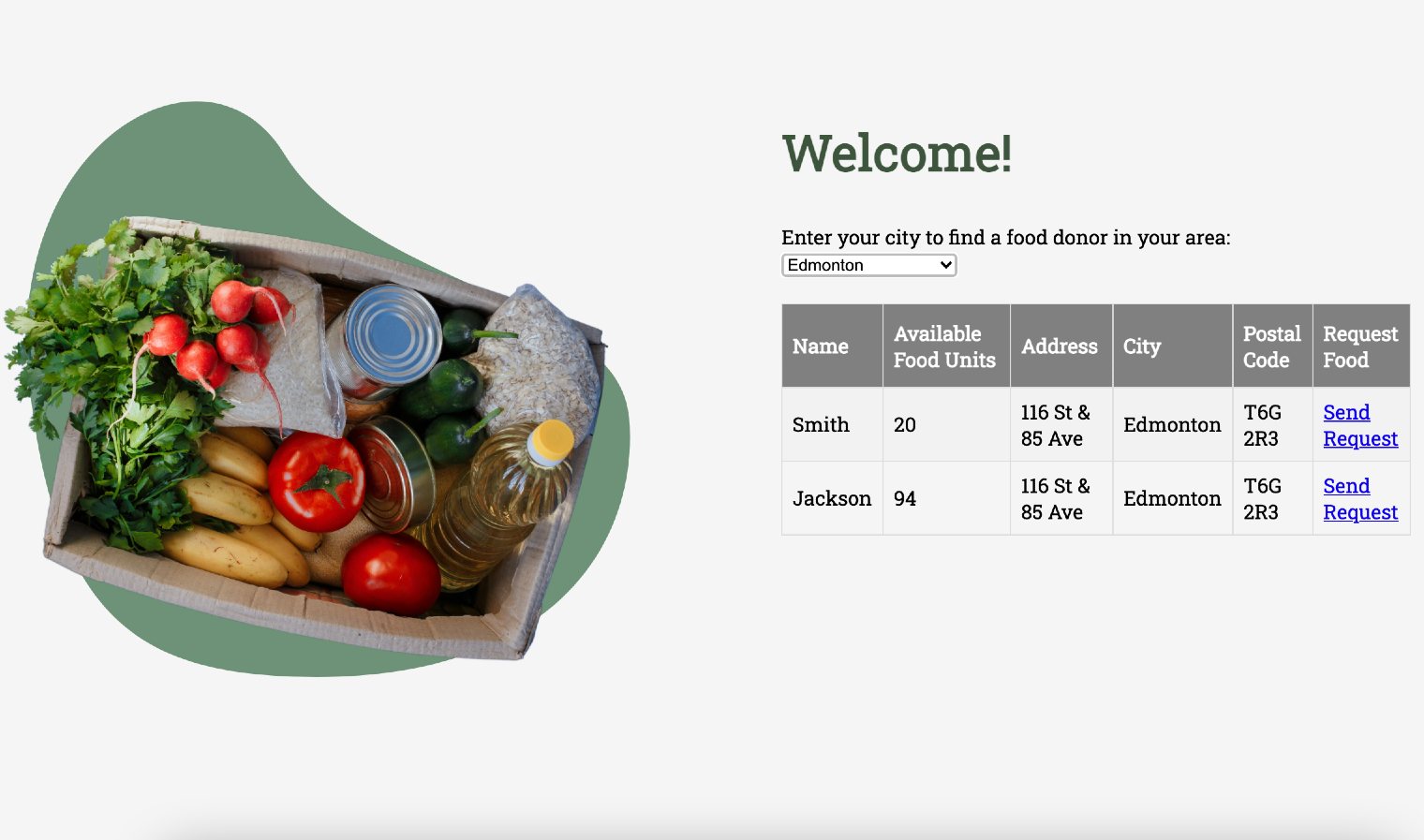
Hackathons are common in the world of tech and software development, where teams come together to tackle a common problem. Here, students in CMPUT 401 have created a web app that can help coordinate donations of unused food.
University of Alberta students had a chance to bolster their technical skills and teamwork while tackling real-world problems based on United Nations sustainability goals in a course-based hackathon in January.
“A student hackathon is not just coding, it’s also an opportunity to learn,” said Ildar Akhmetov, instructor in the Department of Computing Science. “The event had three major goals: giving students a chance to get to know each other, learning in a fun and engaging way, and developing something cool.”
Hackathons are common in the world of tech and software development, where teams come together to tackle a common problem, such as collaborating to develop a new software tool, app, or even a simple game.
The CMPUT 401 hackathon is a regular feature of the project-based course as a way to introduce students to working together.This year’s projects focused on United Nations Sustainable Development Goals (UN SDGs)—an idea sparked by teaching assistant and PhD student Victor Silva.
“Hackathons have their roots in the random acts of kindness movement, and as computing scientists we have to be aware of the problems that are out there and use our skills to address them,” said Silva. “The pandemic has very starkly illustrated the concerns raised by the SDGs, making them more important than ever.”
On the first day of the hackathon, students engaged in a brainstorming session centred on the 17 SDGs, together coming up with more than one hundred project ideas through an online collaborative session. Then, students voted for their favourite ideas and assembled into teams to take on development of the software projects.
Projects ranged from an app that could be used to connect restaurants, grocery stores, and individuals who wish to donate excess food to food banks, to games designed to shine a light on the importance of some of the SDGs. One game, Ocean Cleaner, educates players on marine pollutants and life below water, while another, Sustainable Natural Disaster, involves a number of campsites that players must share resources amongst to ensure survival, focusing on working together.
From concept to reality
“Every semester, students had this opportunity to get together, have some fun coding and build team spirit,” said Akhmetov. “Traditional, in-person, hackathons are a lot of fun: everyone gets into the spirit of working together on the projects they are passionate about. Usually, there is free pizza and lots of social interaction. It’s an amazing way to start the course.”
While the logistical challenges of running a virtual hackathon during the COVID-19 pandemic resulted in the vent being cancelled in the Fall 2020 semester, Akhmetov explains that instructors were able to organize the event online for Winter 2021—with great success. Students in the course will now go on to work on a larger project over the course of CMPUT 401, having already gained hands-on experience in team software development through the hackathon.
“Programmers have great power to change the world,” said Akhmetov. “Our skills, our expertise, can have a huge impact—and that’s something we want to share with students. Just think about it: the code that you write can make our world a better place. Isn’t that amazing?”